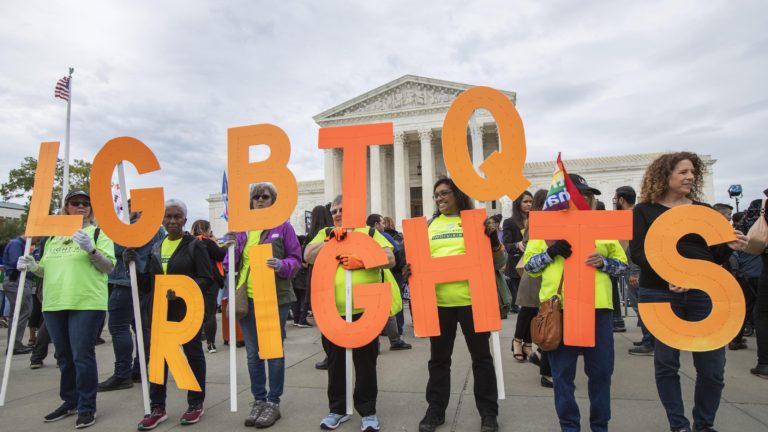

In 2014, when Sandy Varndell’s son came out as transgender, Varndell looked for support but didn’t know where to find it.
“I knew nothing. I knew nobody. At least I didn’t think I knew anyone who had a transgender anyone in their lives,” she said.
So Varndell, a social worker, figuring that others were in the same boat, decided to bring others to her.
“I thought, if I’m looking for support, I might as well do it myself,” she said.
That quest led to the formation of OutSupport, a Medina-based organization founded by mothers looking to support their children in the LGBTQ community.
The group offers support services for families in Northeast Ohio. Some of its work includes support groups for transgender children and their families, purchasing LGBT-themed resources for public libraries, providing transgender youth with needed undergarments and spreading awareness and rainbow flags at community events.
The group has temporarily halted meeting in person for now because of the COVID-19 pandemic but still offers resources and counseling.
Education also is a big part of their work.
More:Walsh University LGBTQIA+ students pushing for change, recognized club
More:Federal judge sides with transgender residents on changing Ohio birth certificates
Part of being a good ally — a straight, cisgender person who isn’t part of the LGBTQ community but supports them — is just understanding things, she said.
As outsiders, allies can use their voice to help draw awareness to issues facing the LGBT community, says Straight for Equality, part of PFLAG National.
The organization offers a free online guide to being an ally on its website StraightForEquality.org.
Some tips on being a good ally:
• Be open to learning.
• Once you’ve educated yourself, educate others, Varndell said. Try to have resources on hand so you easily can combat misinformation or misconceptions when you encounter them.
• Show your support for friends and loved ones. “I’ll go with you,” is a phrase used to indicate support for the transgender community, Varndell said. Offer to go to the bathroom or clothes shopping with a transgender friend nervous to go alone, or offer to accompany them to medical appointments, court dates or to get a new driver’s license, she suggested. That support is important, “especially in those first steps out living your authentic self.”
• If you’re able, offer your financial support to a friend transitioning. Transitioning is an expensive process, and gender-affirming health care isn’t always covered by insurance, she said.
• Ask for someone’s pronouns and use them, Varndell said. When a loved one tells you their pronouns have changed, it can be easy to slip up, “but it’s important to know that you’re trying. That’s part of being a good ally.”
• Display your pronouns in your email signature, on your business card and on social media. When you meet someone new, offer your pronouns without being asked first.
• Display pride flags, such as the rainbow pride flag or the transgender pride flag, at your home, business, classroom or organization. You also could display rainbow stickers in a window or wear pins or a wristband. It’s an easy way to show the LGBTQ community that you’re an ally and that your home or business is a safe place, Varndell suggested.
• Advocate. Write letters to local, state and federal elected officials about working toward equality for everyone, or write a letter to the editor of your local newspaper. It’s vital to voice opposition to legislation that harms the LGBTQ community, Varndell said.
For more on OutSupport, including how to access resources, see OutSupport.org.
Other resources:
• Contact a local 24-hour local crisis hotline at 330-452-6000. You also can contact the LGBT National Help Center at 1-888-843-4564 and the LGBT National Youth Talkline at 1-800-246-7743 and TransLifeline at 1-877-565-8860.
• Access Stark Help Central’s wealth of resources online at StarkHelpCentral.com/coming-out or call 330-455-6644.
• For information and advocacy, see the Humans Rights Campaign at hrc.org; GLSEN (The Gay, Lesbian and Straight Education Network) at GLSEN.org; Ohio-based Kaleidoscope Youth Center at KYCOhio.org.
• For information on ally training, including online courses on being an ally and advocate, see the Safe Zone Project at TheSafeZoneProject.com.